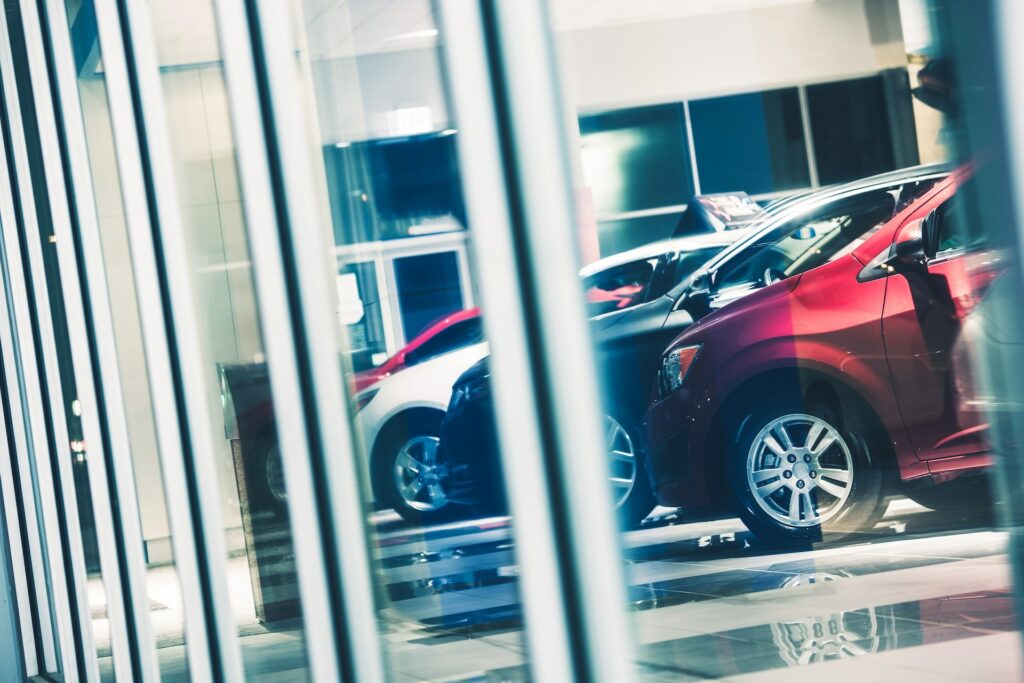Even without the pandemic, the automotive industry was primed for disruption. Electric vehicles, ridesharing, and automation were already changing automotive production and consumer purchasing habits. Since 2020, travel was halted, factories and Chicago dealerships were either shut down or substantially short-staffed, and now ongoing supply chain issues are dampening industry revival. Despite wide-ranging and intense challenges, dealerships have clearly found ways to pivot as evidenced by the results of the 12th Annual Car Buyer Journey Study, conducted by Cox Automotive. According to the Study, dealership experience was very high with 78% of new vehicle buyers indicating a high level of satisfaction. It also found that higher digital engagement boosted customer confidence in price and overall satisfaction. To help clients, prospects, and others, Selden Fox has provided a summary of the key survey findings below.
About the Survey
The Car Buyer Journey (CBJ) Study is an online consumer survey measuring car buyer satisfaction and the dealership experience. It’s an industry-wide barometer for automotive stakeholders. Led by Cox Automotive, the study is widely regarded as a leading indicator of industry health. The 2021 CBJ Study is based on an online survey of 2,976 U.S. consumers who bought or leased a new or used vehicle between September 2020 and August 2021.
New Consumer Insights
All things considered, the automotive industry did well in 2021. Car sales would have been higher were it not for lack of inventory and high prices. Despite these issues leading to a drop in overall car shopping experience, satisfaction with the dealerships was at its highest point. That means dealers took the lessons from 2020 to heart. They revolutionized the car buying experience and moved it online. Almost 80 percent of new and used car buyers reported high levels of satisfaction with the dealer that handled the transaction. Digital-first car buyers remained the most satisfied with the whole experience, price, and had greater trust in the process.
Even though consumers weren’t happy about the prices and lack of incentives compared to 2020, they did report high satisfaction and engagement with the dealership finance teams. Many buyers applied for financing online, which saved time in the physical dealership and streamlined the process.
In addition to low inventory and high prices, there is no hiding that the chip shortage impacted the car buying process. And the shortage could last into 2023. That’s causing some major car manufacturers, like Toyota, to build far fewer vehicles. One report suggested that in 2021, almost 8 million fewer vehicles were produced. Other manufacturers, like General Motors and Nissan, are changing certain features to accommodate the lack of a semiconductor chip.
Buyers experienced the downstream effect of all that: limited vehicle selection, higher than expected prices, going above their initial budget, and experience with more dealer-incentive transactions, like trade-ins, financing, or early lease returns.
Like 2020, consumers are spending less time shopping for vehicles than in the past. Both new and used buyers decreased the amount of time they spent on researching and shopping online, probably due to the low inventory and limited product availability; if they saw a good deal and knew what they wanted, they didn’t waste any more time.
When it comes to online research, 75 percent of the websites that consumers visit are third-party sites. That means dealers should continue to leverage the digital experience and make the car buying process as easy and transparent as possible.
What’s Ahead for Automotive Dealerships
Going into 2022, Chicago dealerships can expect a continuation of motivated, informed buyers. Inventory will continue to be low, and dealerships may not be able to negotiate on price as much as they could pre-pandemic.
To counter those effects, focus on ways to foster trust and loyalty. That means going all-in on digital and leveraging third-party sites and partnerships where possible. Communicate with prospective and current buyers about the auto shortage, and help educate them on available makes, models, features, and pricing.
Contact Us
In 2022, it will be important for your Chicago dealership to stay focused on the customer experience and satisfaction. If you have questions about the information outlined above or need assistance with a tax or accounting issue, Selden Fox can help. For additional information call us at 630.954.1400 or click here to contact us. We look forward to speaking with you soon.





